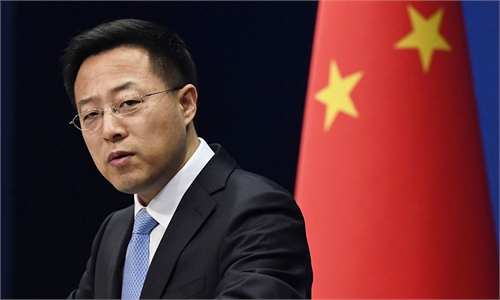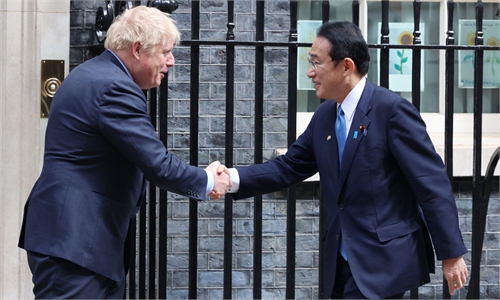
The 28th EU-Japan summit is scheduled to be held on Thursday in Tokyo, during which the two sides will reportedly establish a blueprint for wide-ranging cooperation from trade, to technology and supply chains, with cutting their dependence on China high on the agenda.
Also, Tokyo's ambassador to the US Koji Tomita said on Monday that US President Joe Biden's visit to Japan this month is expected to coincide with the formal launch of a new US economic strategy for the Indo-Pacific to counter China's power in the region, according to Reuters.
There are no objections to Japan seeking cooperation with other countries or regions, but making issues about China under those agenda is an ill-advised choice. Not only that reducing "China reliance" target is not practical when it comes to industrial supply chains, it would cast a shadow over the regional development of Asia, which will not be good news for Japan.
Japan obviously has more intertwined ties with Asian economies, from trading to industrial chain layouts. For starters, China has been the largest trading partner of Japan, followed by the ASEAN economic bloc. The US and EU rank third and forth on the list.
In fiscal year 2021, Japan recorded a trade deficit at $42.4 billion, the highest since fiscal year 2014; meanwhile its exports to China grew 14.9 percent to 18.27 trillion yen ($140.8 billion), a record high.
In Shanghai alone, there are over 5,600 Japanese firms. The Chinese market is not only a critical market for these firms, but also a base for them to explore global markets. As the world's manufacturing hub, China is the only country in the world to obtain all the industrial categories listed in the UN industrial classification. Besides China's colossal consumer market, the comprehensive connection between China and global economy in terms of both trading and industrial chains is of great significance for global businesses, including those from Japan.
Moreover, as both members of the newly-implemented Regional Comprehensive Economic Partnership (RCEP), China and Japan share a potential prospect to promote economic cooperation, which is conducive to Japan's development. The RCEP members as a whole is expected to see more dynamic economic exchanges and more integrated development of industrial chains.
In fact, though Asian countries and regions maintain differences in their respective political systems, cultures and other elements, the region has maintained a relatively stable equilibrium for decades which is exactly the most important premise for regional economies to grow. Based on the stable growth, Asia, especially the East and Southeast Asian region, has become one of the economic centers of the world. It has been widely acknowledged that the global economic center is tilting toward the Asian region.
Meanwhile, Japan businesses' exertions in Europe have not been smooth sailing over recent years. Brexit is often cited as a major factor, as many observers believe, given the UK has been a vital base for Japanese firms operating in Europe.
Japanese car maker Honda shifted some production capacity of one of its series from UK back to Japan in 2020, and decided to close its UK factory in 2021 "in response to a slumping European economy and the UK's exit from the EU," Nikkei Asia reported in August 2020.
In essence, it is the economic rules determining the evolvement of the world's economic landscape, no matter how certain economies trying to distort the progress.
China, as a main driver of the global recovery amid the post-COVID era, has been committed to safeguarding multilateralism, contributing to regional stability and the smooth operation of global supply chains. In fact, projects under China-proposed Belt and Road Initiative (BRI) have played a role in facilitating cooperation between Japan and the EU.
By exploiting BRI transportation projects, major Japanese logistics firm Nissin Corp and Sinotrans, China's largest integrated logistics service provider, joined hands in 2018 to pave the way for an alternative route to ship cargo from Japan to Europe faster than traditional ocean routes, according to the Japan Times.
To sum it up, only by working together based on mutual respect could economies and the world realizing common growth. Japan and the EU, or other countries, should truly uphold multilateralism so as to promote recovery of the global economy, rather than indulge in dangerous geopolitical games which only lead to lose-lose consequences.
The author is an editor with the Global Times. bizopinion@globaltimes.com.cn


